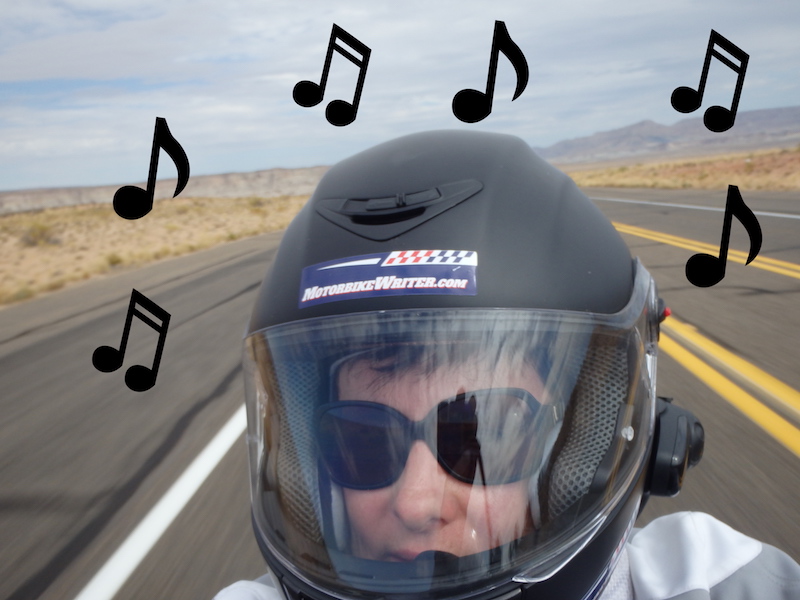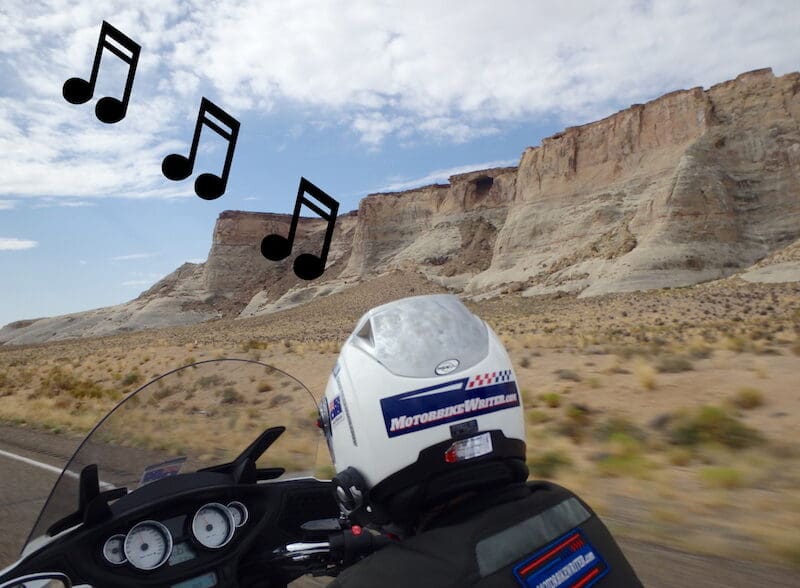Bluetooth helmet systems now allow riders on any type of motorcycle to listen to music while they ride, but are they safer or more distracted?
Some riders say it helps them concentrate and quells the boredom of long spells in the saddle.
Others say it causes a distraction.
And then there are motorbike traditionalists who say music kills the roar of the wind, the thrum of the cylinders and the growl of the exhaust which is music to their ears.
So who is right?
It seems very subjective, but is there actual psychological science behind whether music helps riders focus on their riding or distracts them?
We asked psychologist and rider Sharon Ledger whether it makes us safer or more dangerous riders.

Typical of a psychologist, she says there is no definitive answer.
“The answer is yes and no,” she says. “It depends on the person and the type of music.”
We deal with the recommended types of music in another article.
Test your distraction
Meanwhile, Sharon suggests taking one of the many online tests to gauge your ability to be distracted.
Click here to try the “orange and white” test on this web page as an example.
If you score high, then music is less likely to diminish your riding performance. If you score low, then tunes may be too distracting for you and detrimental to your concentration.
Sharon says some psychological studies also show that women are less distracted by music than men because they are better at multi-tasking.
Musical distraction

It seems logical that musical sounds can take up some of your brain power and therefore distract you from the task at hand.
But Sharon says that’s not necessarily the case as the physical skills of using levers, throttle, etc, are controlled by a different area of the brain to that listening to music.
“Music actually lights up more areas of the brain which is better as it makes the brain more active,” she says.
“Einstein often listened to music and played violin to help him brainstorm ideas.
“Geniuses who can multi-task use music to increase their brain power. If you activate one area of the brain, it activates nearby structures making the brain work faster and it becomes more creative.”
Less distraction
Sharon says music can also reduce the distraction of other background noises.
“It helps reduce the negative effects of wind, white noise and other distracting sounds and helps the rider concentrate on what they are doing,” she says.
“Music is linked to attentive thinking areas of the brain, so it’s going to increase your focus, attention and even your reaction times.
“That’s even more important if, for example, you are riding on a long and boring highway.”

However, Sharon says there are counter arguments as well.
“If there are too many words or intricate beats in the song it activates more of your conscious brain, therefore detracting from your motor skills,” she says.
“There are also studies that show slow songs decrease your reaction times, which is not good.
“Fast beats can increase your reaction times, but it can also make you a more aggressive rider and reduce your logical judgement.”
Conclusion
Sharon says there is no conclusive evidence that music is good or bad for all riders.
“It comes down to the rider and the type of music they are listening to,” she says.
“If it works for you, then use it to make you safer, but if you find it too distracting or causing you to ride too fast, then unplug your earphones.”


